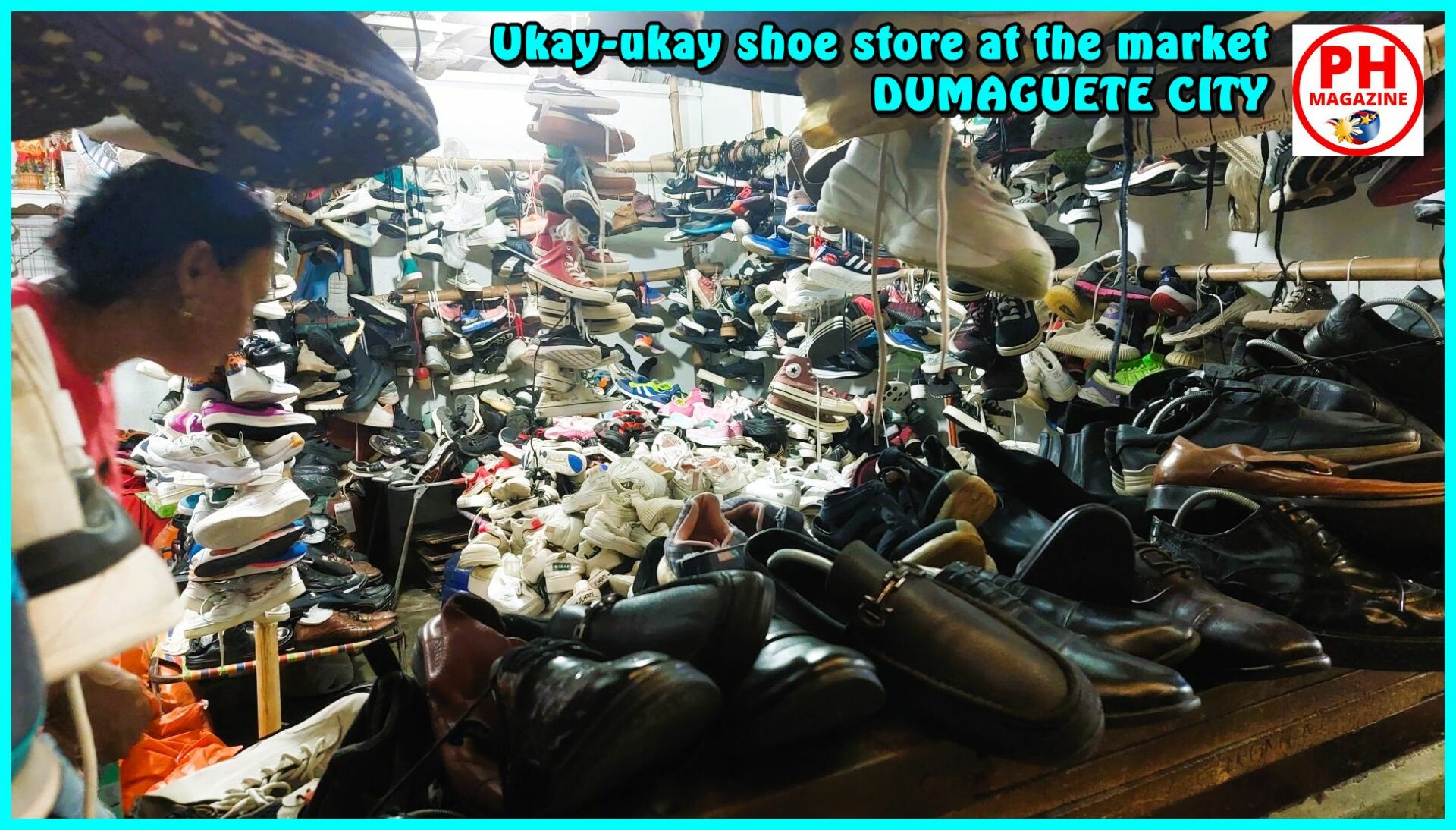Venture into any corner of the Philippines, and you’ll likely encounter the vibrant presence of ukay-ukay stores. These quaint establishments offer a treasure trove of secondhand goods ranging from clothing and accessories to bags and shoes, all at pocket-friendly prices. What makes ukay-ukay truly unique is its eclectic selection, often featuring items imported from European and North American countries.
An image of one of the ukay-ukay stores at the public markets on Negros Island, specialized in ukay-ukay shoes.

Etymology
The term “ukay-ukay” finds its roots in the Cebuano language, specifically from the verb “ukay,” which translates to “to dig” or “to sift through.” This act of sifting through clothing resonates deeply with the essence of ukay-ukay shopping, where patrons eagerly scour through racks to unearth hidden gems. In essence, ukay-ukay encapsulates the spirit of thriftiness and adventure in shopping.
History
The origins of ukay-ukay trace back to the early 1980s, with Baguio City often credited as its birthplace. During this period, the Philippine Salvation Army provided humanitarian aid in the form of secondhand garments to victims of calamities. As surplus donations accumulated, savvy traders seized the opportunity, purchasing these goods in bulk and reselling them to the public at affordable prices. Initially targeting low-income consumers, ukay-ukay stores gradually gained popularity, attracting a diverse clientele, including those seeking budget-friendly branded items.
Today, ukay-ukay shops have become an integral part of Filipino society, dotting urban landscapes and rural communities alike. The appeal of ukay-ukay extends beyond economic considerations; many patrons appreciate the superior quality and unique finds offered by these stores compared to new merchandise.
Legality
Despite its widespread popularity, the legality of ukay-ukay remains a contentious issue. The commercial importation of secondhand clothing has been prohibited in the Philippines since 1966 under Republic Act No. 4653. This legislation aimed to safeguard public health and preserve national dignity by restricting the importation of used clothing and rags. Consequently, a significant portion of the ukay-ukay trade operates within a legal gray area.
Calls for the review and amendment of existing laws to legalize the sale of imported secondhand clothing have emerged, reflecting the enduring appeal and economic significance of the ukay-ukay industry. As discussions surrounding the legality of ukay-ukay continue, these thrift stores remain beacons of affordability, sustainability, and cultural heritage in the Filipino retail landscape.